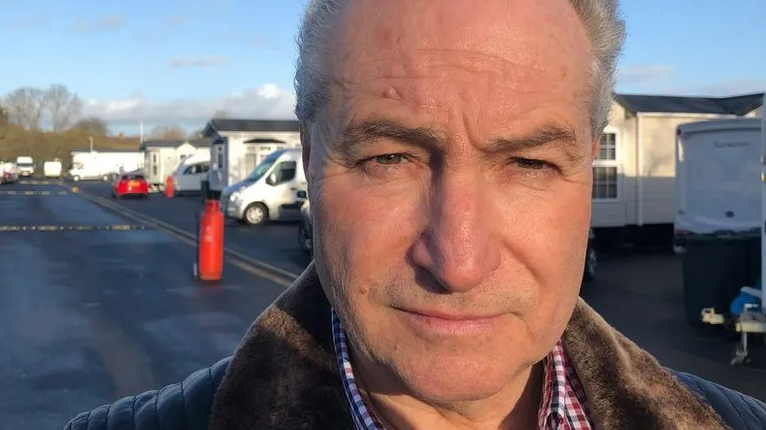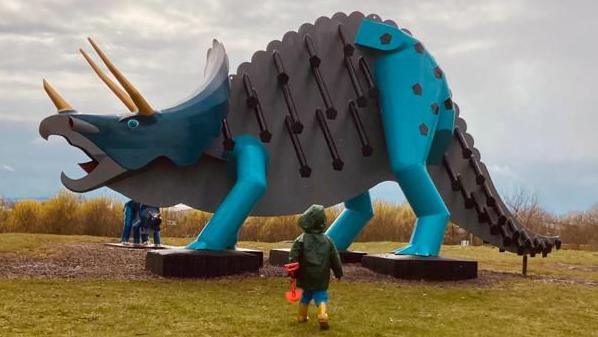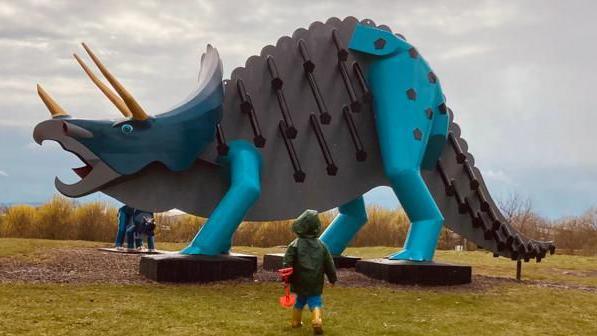Travellers 'have to live somewhere' - Gypsy leader

Gypsy spokesman Billy Welch
- Published
A Gypsy leader says more illegal encampments could happen if a shortage in accommodation for the travelling community is not tackled.
More than 1,000 people have signed a petition resisting Middlesbrough Council plans for a travellers' site at the popular Teessaurus Park.
Spokesperson for the Gypsy and traveller community, Billy Welch, said more pitches are needed to accommodate the growing population.
He said: "We've all got to live somewhere."
Park plans opposition
Under Middlesbrough Council's draft local plan, the town's popular dinosaur park could be relocated to accommodate 14 Gypsy or traveller pitches, needed to meet government targets.
Teessaurus Park's array of dinosaur sculptures would remain publicly accessible but not necessarily at the same site, a spokesman for the council said on Thursday.
The proposals have been met with strong opposition, with campaigners urging the authority to look into alternative solutions to accommodate the traveller community.

A travellers' site could be built on land at Teessaurus Park in Middlesbrough
The proposals are included in the council's draft local plan, which sets out development policy up until 2041.
During that time, the council will need to find land to accommodate 14 additional pitches for Gypsies and travellers in order to meet government expectations.
'Serious shortage'
The need for more pitches is pressing, according to Darlington-based Billy Welch, who represents the UK's Gypsy community.
He said the travelling community, "like the settled community", is expanding amid a housing shortage.
Highlighting a national shortage of legal and safe places for Gypsies and travellers to stop, he said inadequate provision would inevitably lead to more illegal encampments.
Mr Welch said: "It's practically impossible for Gypsies and travellers to travel.
"They have to go from site to site and there's a serious shortage.
"So they end up where they're not supposed to be, where they don't want to be, and where local residents don't want them to be.
"They'll move onto private or wasteland or green belt land and the settled community will kick up a fuss.
"But they've got no choice - what are they supposed to do, vanish off the face of the earth?
"They have to live somewhere."
Follow BBC Tees on X (formerly Twitter), external, Facebook, external and Instagram, external. Send your story ideas to northeastandcumbria@bbc.co.uk.
More stories from BBC North East and Cumbria
- Published11 January 2024
